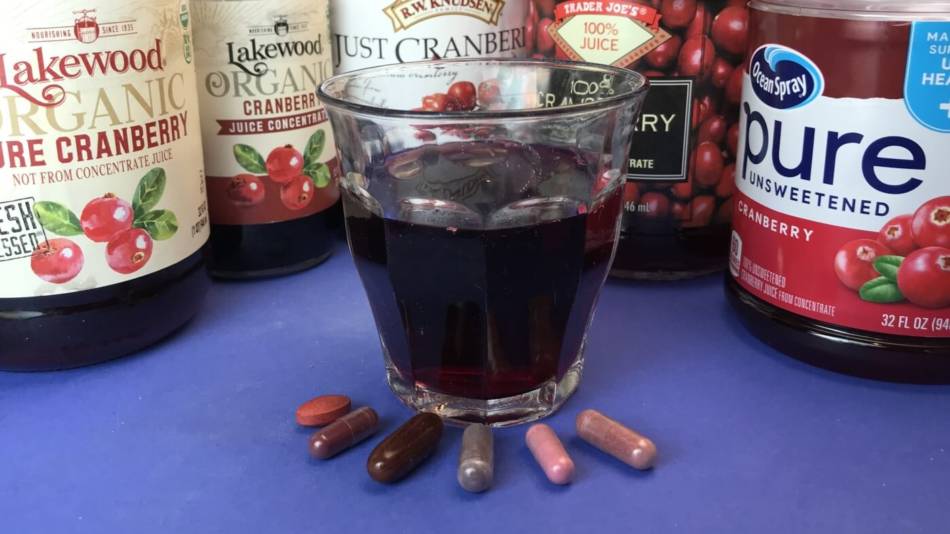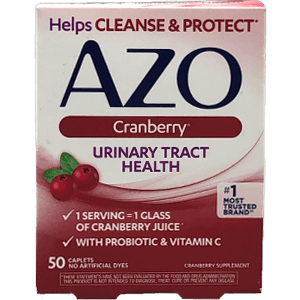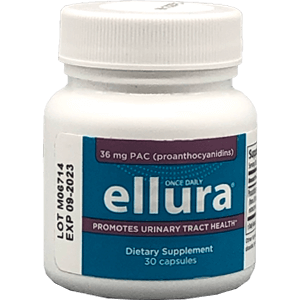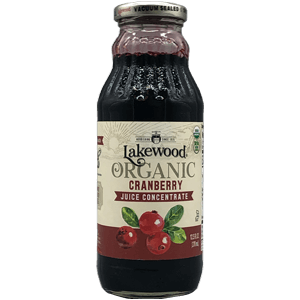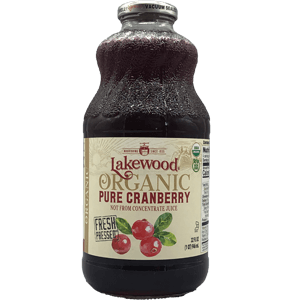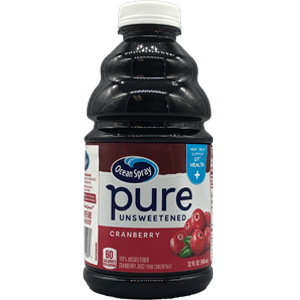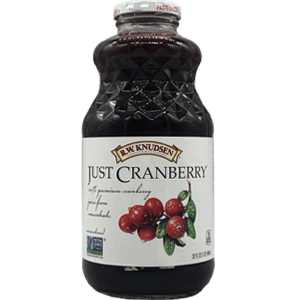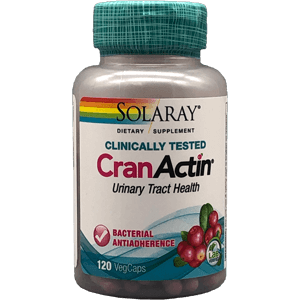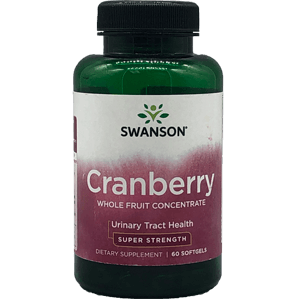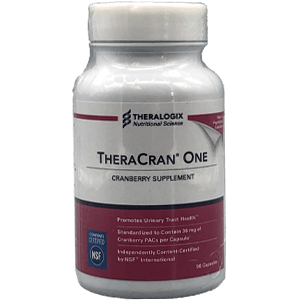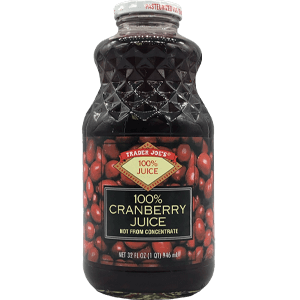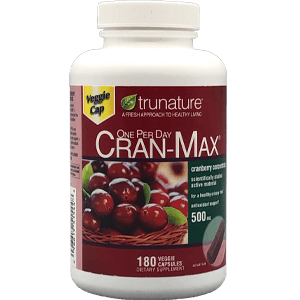Summary
-
Does cranberry help prevent or treat UTIs?
Drinking 100% cranberry juice or taking a cranberry supplement may help reduce the risk of recurrent UTIs in women, although the evidence is limited. Drinking the juice is more likely to help than taking a supplement. However, there is no good evidence that cranberry juice or pills can treat an existing UTI. Limited evidence suggests cranberry may reduce symptoms of overactive bladder, lower urinary tract symptoms (LUTS) and symptoms of prostatitis. See What It Does for details.
There is less evidence of benefit for dried cranberries and cranberry chews, and the benefit of cranberry for UTIs in children remains uncertain.
-
What is in cranberry that helps it work against UTIs?
Cranberries contain a variety of polyphenolic compounds that include proanthocyanidins (PACs). PACs have been shown to limit the ability of E. coli bacteria to adhere to the walls of the bladder and urinary tract. By limiting this adhesion, PACs from cranberry — particularly water-soluble A-type PACS (at 36 mg once or twice per day) — may reduce the risk of urinary tract infections (UTIs). See What It Is for more information.

Best cranberry juice or pills?
ConsumerLab's tests determined the amounts of water-soluble PACs in cranberry products. Amounts per serving ranged nearly 200-fold, from as little as just 0.54 mg to as much as 105.6 mg, and the cost to get 36 mg of PACs ranged from just 35 cents to $21.67. See What CL Found for details.
Our Top Picks among cranberry juices and supplements each provided the highest amount of PACs among competing brands and did so at much lower cost. This means that you can avoid as many as 153 Calories and get an effective dose of PACs for preventing UTIs by drinking, for example, our Top Pick pure cranberry juice as opposed to a much larger amount of a sweetened cranberry cocktail (see What to Consider When Buying).
-
What to look for on cranberry labels?
When looking at the amounts of PACs listed on labels, it is critical that you also look for the type of PACs (such as A-type PACs versus OSP-PACs), as the units are very different (see PAC Test Methods for details). If the type of PAC is not disclosed, the amount is meaningless.
-
Is cranberry safe to use?
Cranberry beverages or dietary supplements are generally safe for most people, although people with diabetes, those at risk for kidney stones, and those with an aspirin allergy may need to use caution. See Concerns and Cautions for details.
Products tested in 2021
+— 47 sources
In addition the results of its expert testing, ConsumerLab uses only high-quality, evidence based, information sources. These sources include peer-reviewed studies and information from agencies such as the FDA and USDA, and the National Academy of Medicine. On evolving topics, studies from pre-print journals may be sourced. All of our content is reviewed by medical doctors and doctoral-level experts in pharmacology, toxicology, and chemistry. We continually update and medically review our information to keep our content trustworthy, accurate, and reliable. The following sources are referenced in this article:
- Feliciano, Food Chem 2012
- Howell, Phytochem 2005
- Bianco, J Am Geriatri Soc 2013
- Bonetta, Cancer Manag Res 2012
- Burleigh, Nutr J 2013
- CFSAN Constituent Update, 2020
- Cameron, Neurourol Urodyn 2024
- Cho, J Urol 2020
- Christman, Nutrients 2024
- EFSA 2013
- Flanagan, Front Nutr 2022
- Foxman, Am J Obstet Gynecol 2015
- Gao, Food Funct 2021
- Gkiourtzis, Pediatrics 2024
- Grace, J Food Sci 2016
- Hamilton, Support Care Cancer 2015
- Herst, Radiother and Oncol 2020
- Howell, BMC Infect Dis 2010
- Howell, J Diet Suppl 2021
- Jepson, Cochrane Database Syst Rev 2023
- Juthani-Mehta, JAMA 2016
- Ledda, Eur Rev Med Pharmacol Sci 2016
- Li, J Gastroenterol Hepatol 2020
- Liu, Food Funct 2019
- Maki, Am J Clin Nutr 2016
- Seyyedmajidi, J Res Pharm Pract 2016
- Shmuely, Mol Nutr Food Res 2007
- Stonehouse, Am J Clin Nutr 2025
- Tsiakoulias, World J Urol 2024
- Vidlar, J Br Nutr 2010
- Vidlar, World J Urol 2016
- Vladmir, Biomed Pap Med Fac Univ Palacky Olomouc Czech Repub 2016
- Wang, Arch Int Med 2012
- Williams, Cochrane Database Syst Rev 2023
- Zhang, Helicobacter 2005
- Brendler, Botan Adulterants Bulletin, 2017
- Aggarwal, StatPearls 2022
- Botstein, J Med Assoc Ga 2014
- Coumadin Prescribing Information 2019
- Dave, Cureus 2016
- Ge, Evid Based Complement Alternat Med 2014
- Gettman, J Urol 2005
- Madden, Planta Sci Med 2021
- McHarg, BJU Int 2003
- McMurdo, Age and Ageing 2005
- Redmond, World J Urol 2018
- Terris, Urology 2001
As a ConsumerLab.com member, you may print a copy of this report for your personal use.
You can access a special print version by clicking the "Print" icon in the upper right corner of this report.
You can then use your web browser's print functions to print the whole report or just selected pages.
You may also email or post a link to this report using the web address above.
Non-members using the link will see a free summary and can join to view the full report.
Other means of copying or distributing this report, in part or full, are not permitted.
If you are sight-impaired and your computer is having trouble converting the text in this report to speech,
contact us for assistance at Membership@ConsumerLab.com or by
phone at 914-722-9149.

